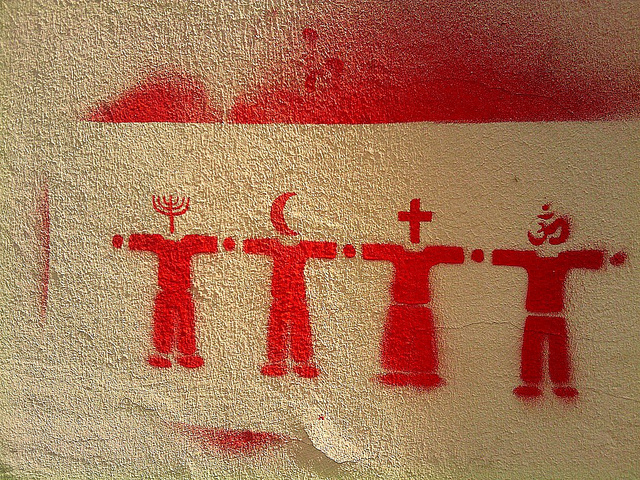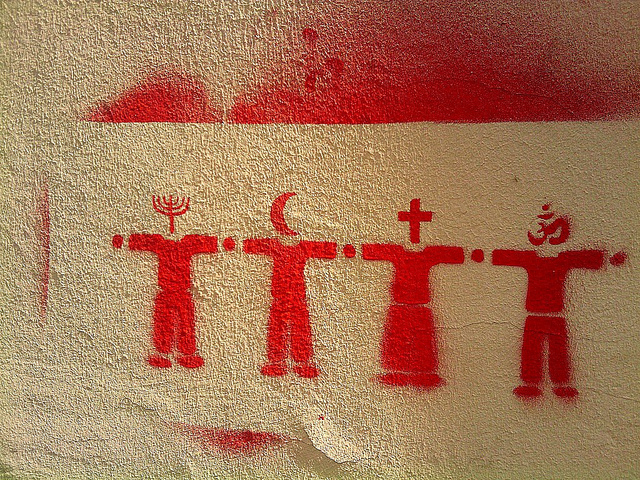
The new Charter of Quebec values is criticized for its discriminatory ideas
Photo: Matthew Fearnley / Flickr Creative Commons
Kalina Laframboise
CUP Quebec Bureau Chief
MONTREAL (CUP) — The Parti Québécois officially tabled its controversial charter of values, aimed at separating church and state, in the National Assembly this week with stricter regulations for civil servants for religious accommodations.
Minister responsible for Democratic Institutions and Active Citizenship Bernard Drainville presented Bill 60, now known as the Charter affirming the values of state secularism and religious neutrality and of equality between women and men, and providing a framework for accommodation requests, nearly two months after the PQ announced the project.
However, while public consultation yielded a wide range of support and opposition for the charter — including 25,000 emails from Quebec residents — the provincial government’s revised proposal would implement tougher restrictions.
The PQ also seeks to amend the province’s Charter of Rights and Freedoms to set out the conditions of granting accommodations and emphasizing “the primacy” of the French language in Quebec.
Religious symbols
In September, the PQ introduced the charter in order to promote secularism through prohibiting civil servants — such as professors, doctors and daycare workers — from wearing “ostentatious” religious symbols including niqabs, hijabs and turbans. In the new document, the ban will apply to all religious garb and “other adornments.” However, these rules do not apply to employees who provide spiritual guidance in a centre in a public institution.
All public sector employees will not be allowed to wear any clothing that covers the face unless it is for working conditions.
However, members of the National Assembly may apply to wear their own religious wear should they receive unanimous approval in a vote. There will also be a public consultation to discuss the whether the crucifix will remain in the National Assembly.
Religious holidays
Individuals who work for public institutions may apply for reasonable accommodations on religious grounds but it must not cause undue hardship on a workplace such as a hospital or school. It may also attempt to restrict students from missing school for religious holidays that are not Christian.
Implementing the rules and disciplinary measures
Public institutions will have to introduce their own policies to ensure the measures of the bill are followed and if they don’t, the government would be able to step in. The policy implemented would have to be posted publicly for civil servants to follow and available on the institution’s website.
Furthermore, individuals who engage in contractual work with public or para-public bodies are also be obligated to adhere to the rules set out in the charter.
Employers must enact their own disciplinary measures although it remains unclear as to what those measures would consist of.
Opt-out periods
Unlike the proposal from September, the PQ would allow for a transition period of one year for public institutions while no longer allowing a five-year exemption period. Bill 60 would no longer allow for exemptions for universities or hospitals but would allow for longer transitional periods of up to five years, but only upon approval of the government.
Will a revised Charter of Values pass?
With a minority government, the PQ will need the support of its opposition to pass Bill 60 although provincial parties publicly denounced the proposal on Thursday, Nov. 7. The federal Conservative party, New Democratic Party and Liberal party also released statements in opposition to the proposed charter.
The Quebec Liberal Party, Coalition Avenir Québec and Québec Solidaire stated they will vote against the PQ’s bill. However, the PQ proposed a vote of confidence prior to tabling the bill — which means that if two parties had voted against tabling the bill it could have dissolved the provincial government — but it was unnecessary.
However, it could be months before Bill 60 has a second reading because it needs support from the opposition.


